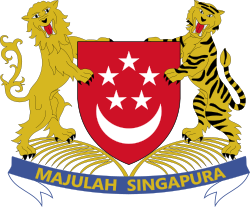Andrew Kuan's background
On 9 August, Prime Minister Lee Hsien Loong called for all candidates to be open about their records so that Singaporeans could make an informed judgment on them. He also encouraged Andrew Kuan's former employers to come forward, speak freely, and tell Singaporeans what they knew about him. [4]
On 11 August, Kuan's former employer, JTC, held a news conference to outline the circumstances leading to Kuan's resignation in July 2004. Chong Lit Cheong, JTC's chief executive officer, stated that Andrew Kuan's work at JTC had been unsatisfactory since his first year there, and he had been asked to resign twice, once in 2003 and again in 2004. No details as to how his work was unsatisfactory were provided, other than a note that no fraud or other crime was involved, and he needed "quite a fair bit of handholding". In reply, Kuan noted that he had worked at JTC Corporation for 37 months, which had extended his contract several times, and he had been given performance bonuses and a raise during this period. Another company, Hyflux, also publicly criticised Kuan. [5]
Later, Kuan was disqualified by the Presidential Elections Committee for failing to meet the criteria for running for president. The committee said Kuan's seniority and responsibility as JTC's chief financial officer were not comparable to those required by the Constitution. A presidential candidate is required to have had experience as the chairman or CEO of a statutory board or of a company with a paid-up capital of at least S$100 million.

